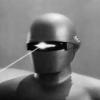Search the Community
Showing results for tags 'sound'.
-
I know that "predefined sounds" is on the "Considered" list on Trello: https://trello.com/c/HVdTjEsH/51-functional-scriptable-speakers-able-to-play-predefined-sounds While I think that would be cool, I think it would be cooler if we had access to a synth sound module through LUA to build and sequence our own custom sounds. Writing sound synthesis by hand isn't unheard of in LUA, for example: And even more, here are some tracks composed entirely with LUA: https://soundcloud.com/luehi/systemf https://soundcloud.com/luehi/luacid1 https://soundcloud.com/luehi/early https://soundcloud.com/luehi/selfkitchen https://soundcloud.com/luehi/luaessay5 https://soundcloud.com/luehi/movk I think that giving us the flexibility to define our own sounds with such an approach would be incredibly more valuable than choosing from a list of predefined sounds. In case anyone is wondering, yes I am suggesting this because I want a night club in DU.
-
Suggestion to add sound devices In DU you can present visuals using html, svg, widgets, but when it comes to audio, things are not so bright. Sound is important if you want players to be able to make games. Sound can play role in interfaces, used for alarms and, of cource, playing music! So I propose adding to the game lua-controlled "SPUs"/"sound devices"/"sound units", that will allow players to do all kinds of stuff - from simply playing sound on notification in theyr programs to implementing sound effects in the game, or even creating sound trackers and sequencers (to then create music in it). sound device: -has sound memory consisting of, say 44100*8 bytes (number depends on sound device tier), which that can be read as integers using get_sample, set_sample. -has 8 channels (also depends on sound device tier). each channel can be set to play samples from area in audio memory or use oscillator. Each channel can have 1 siimple filter on it. sound device api: sound memory manipulation functions: samples_count(sample_depth) - returns how much integer values of size sample_depth in bytes sound memory can hold get_sample(sample_depth, sample_index) - interpreting sound memory as array of signed integer numbers consisting of sample_depth bytes return sample_index'th integer number from this array. sample_depth can have value 1, 2, 4, 8. On any other value get_sample returns nil sample_index wraps around if higher than number of integers in array set_sample(sample_depth, sample_index, new_value) - interpreting sound memory as array of signed integer numbers consisting of sample_depth bytes set sample_index'th integer number to new_value. getNSamples(sample_depth, sample_index, N) - same as get_sample, but instead of getting 1 integer value it returns table consisting of N values from audio memory starting from position sample_index. Can be merged with get_sample setNSamples(sample_depth, sample_index, new_value) - same as set_sample, but instead of setting 1 integer value, it sets #new_value samples to values from new_value table starting at position sample_index channel control fuctions: channels_count() -returns number of channels sound device has channel_set_sound_source_memory(channel_num, sample_depth, sample_rate, start, end, loop) -set channel to play sound from sound memory channel_set_sound_source_osc(channel_num, type, frequency, osc_param) -type is string - "noise", "sin", "tri", "square". triangular and rectangular waveforms take 1 more paramenter for rate channel_set_volume(channel_num, new_volume, time, delay) - sets channel volume to new_volume. If time arg is provided, volume will be changed gradually in time milliseonds (if not interrupted by another set_volume command). If delay arg is provided, volume change start will start in delay milliseconds after this command called. channel_set_pan(channel_num, new_pan, time, delay) - sets channel pan to new_pan. 0 is left, 1 is rigth, 0.5 is center channel_set_pitch(channel_num, new_pitch, time, delay) channel_start_note(channel_num, delay) - starts note on channel. start is delayed for delay milliseonds, if delay parameter provided. If other note was playing on this channel, it ends. channel_end_note(channel_num, delay) channel_set_filter_type(channel_num, type, delay) - filter types are "none", "highpass", "lowpass", "comb", "bandpass" channel_set_filter_base_frequency(channel_num, freq, time, delay) channel_set_filter_gain(channel_num, gain, time, delay) - in dB, if applicable to filter channel_set_filter_param(channel_num, param_num, param_amount, time, delay) - filter-specific params, such as resonance for "highpass" or "lowpass", bandwidth for "bandpass"
-
Being able to build underground, in space etc, obviously there will be different environmental sounds. What about inside your constructs, in the cockpit of your ship for example, exterior sounds would be muffled, This will probably be part of the cockpit element. But what about inside large player made buildings? Perhaps a positional sound effect as a tool on a very basic level? Hall Crowd Windy etc.
-
If the devs arnt planing in game voices, then it should be implemented Games like ark, garrys mod and space engineers have these in and are great for it It takes time to type while the voice is more faster and quicker to respond during any type of encounter.
- 1 reply
-
- Microphone
- Voice
-
(and 1 more)
Tagged with:
-
Not exactly a game mechanic, so I suppose this thread goes in this forum. Click here to listen to my 4 hours of work. Imagine a 3-engine atmospheric hovercraft 10 meters ahead of you. We've been teased screenshots, models, textures and music, but we haven't really been teased interesting sound effects (outside of cockpit_enter sound and footsteps_grass.ogg). This leaves me cause for concern, that one of the most important tools in immersion, sound, could be taking a bit of a back-seat in Dual Universe. (Unigene2 defaults? Good enough! ) Coming back to my little sci-fi jet engine type of thing, I know it's not amazing by any standards, personally it sounds like something from a low-budget sci-fi short, but the sound itself is not the point, I'd like to emphasize what happens to the sound as the 'craft' moves up and then away from the listener. Most open-world sandbox games do not handle sound coming from extreme distances very well, or at all.(*cough*spaceengineers*cough*) I hope Dual Universe has plans to make a proper soundscape on planets, where you can hear what you can see, as it is a key factor in immersing the player in the first few hours of game-play on a planet. Seriously. Am I the only one who really wants to hear a Ker-Thunk coming from across the valley, several kilometers, when someone's construct explodes? Or a deep rumbling in the sky when a heavier aircraft flies across the sky, a kilometer or two away. Mmmmm... oops, better stop drooling.
- 2 replies
-
- Sound
- Sound Effects
-
(and 2 more)
Tagged with:
-
I was thinking... What if the devs add sound blocks with programmable/sequenceable sound bytes so we could have people making live music... IN SPACE! Heck, you could even make sequences like you do scripts and sell them in-game. O.o
- 1 reply
-
- spacemusic
- DJs
-
(and 1 more)
Tagged with:

(1)(1)(1)(1)(1)(1)(1)(1).thumb.png.c773b1e39c1958ea50a83f6e35520029.png)





